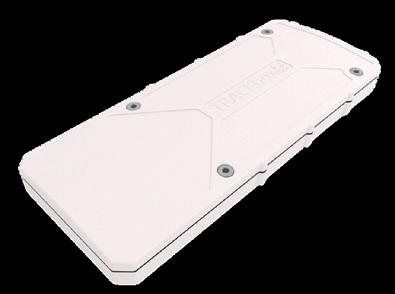
4 minute read
Human Resources Info
HUMAN RESOURCES UPDATES WHAT YOU NEED TO kNOW
PRIVACy ACT 2020: Parliament recently passed the Privacy Act 2020. This new Act will replace the current Privacy Act 1993 and will come into effect on 1 December 2020. The Privacy Commissioner has announced that the “new Privacy Act provides a modernised framework to better protect New Zealanders’ privacy rights in today’s environment”. The key reforms in the Privacy Act 2020 include: • Mandatory notification of harmful privacy breaches to both the Privacy Commissioner and affected parties. • The introduction of compliance orders, which will enable the
Privacy Commissioner to require compliance with the Privacy Act.
Failure to comply with a compliance order could result in a fine of up to $10,000. • Access determinations, which will give the Privacy Commissioner the power to demand release of information if any organisation or business refuses to make personal information available on request. • Controls on the disclosure of information overseas. These will require that, before disclosing personal information overseas, New Zealand organisations or businesses will need to ensure the overseas entities have similar levels of privacy protection to those in New Zealand. • New criminal offences which will make it an offence to mislead an organisation or business in a way that affects someone’s personal information or to destroy personal information if a request has been made for it. Maximum fines will be $10,000 per offence. • Requirement for compliance with the Privacy Act 2020 by international platforms. This will mean that if an international platform is carrying on business in New Zealand, with
New Zealanders’ personal information, they will have to comply with the Privacy Act regardless of where they, or their servers, are based. • Breach of privacy claims can already (ie under the Privacy Act 1993) result in significantly high awards of damages if they are successfully taken to a hearing before the Human Rights Review Tribunal.
Under the Privacy Act 2020, damages will be able to be awarded for: • Pecuniary loss suffered; • Expenses reasonably incurred; • Loss of any benefit, whether or not of a monetary kind; • Humiliation, loss of dignity, and injury to the feelings of the aggrieved individual. We expect that breach of privacy claims will continue to be a risk for an employer or previous employer and with the strengthening of the new Privacy Act 2020, may even become a greater risk. A breach of privacy issue we commonly encounter is a previous employer talking to third parties or giving verbal references about an employee or former employee. You cannot do so unless you have been expressly permitted to do so by the employee concerned. This is the case even if you are phoned out of the blue by a prospective employer. If you have not been permitted to speak to that prospective employer, then you must decline to do so on the basis you do not have the employee’s permission.
PROOF OF SICKNESS OR INJURy
We regularly receive questions from employers about the ability to request a medical certificate from an employee who is absent from work due to claimed sickness or injury. Under section 68 of the Holidays Act 2003, an employer may require an employer to provide proof of sickness or injury in relation to a claim for paid sick leave in the following circumstances: 01. If the sickness of injury is for a period of 3 or more consecutive calendar days (whether or not the days would otherwise be working days for the employee), the employer can require that the proof be provided at the employee’s cost;
Note: an employee claiming paid 02. sick leave for a Friday and following Monday can be required to provide proof of the sickness or injury; 03. If the sickness or injury is for a period of less than 3 consecutive calendar days, the employer can require that the proof be provided at the employer’s cost as long as the employer informs the employee as early as possible that proof is required. The above applies even if the sick leave is being claimed due to the employee not working as a result of a spouse/partner or dependent of the employee being sick or injured. In either case, the employer cannot specify who the proof is to be obtained from. Section 68 does not prevent an employer from requiring an employee to provide medical information or to see a medical practitioner of the employer’s choice in certain circumstances if the employee’s employment agreement includes such clauses, or if there are applicable health and safety or medical fitness for work considerations. Dealing with medical issues in employment is becoming increasingly tricky as there is almost always the potential for conflict and competing considerations due to: • The unlawfulness of discriminating on the basis of an employee’s disability (which includes mental or physical illness or impairment) under the Human Rights Act 1993; and • Health and safety considerations; and • Medical fitness for work issues. • If in doubt, we recommend you seek legal advice.
Danny Jacobson and Trudy Marshall are Partners at Employment Lawyers Tauranga and they specialise exclusively in employment law. They operate our Employment Helpline for HIANZ members: phone 07 928 0529. The above is by its nature general, and is not intended to be a substitute for legal advice.










